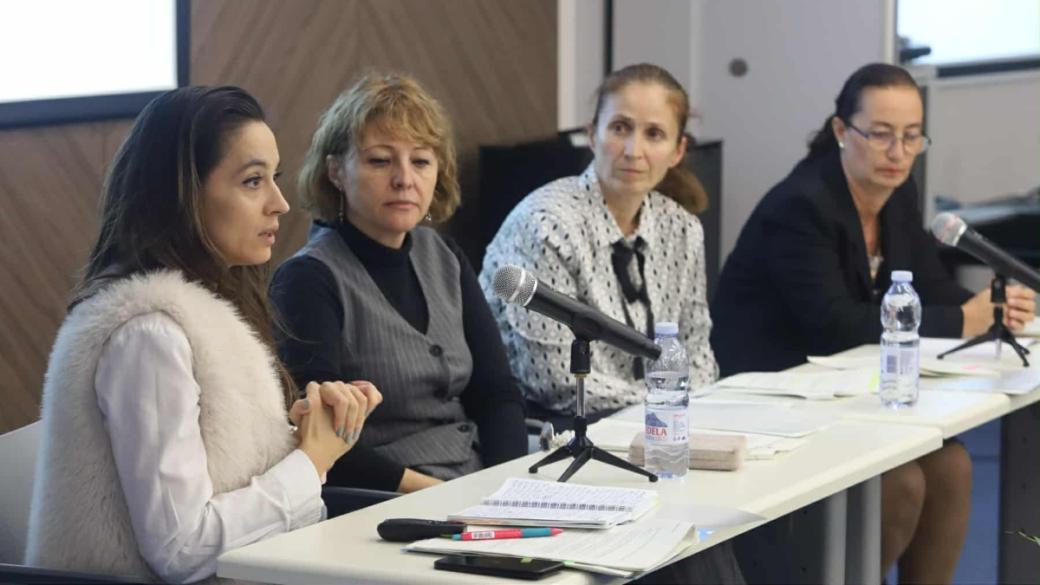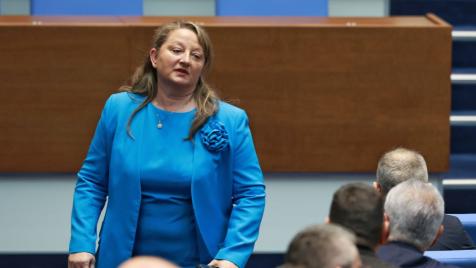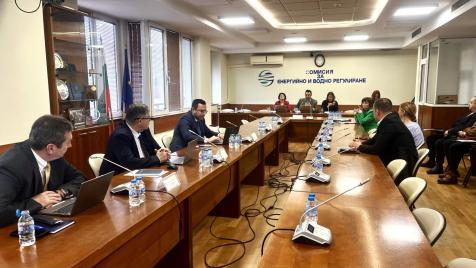Business is caught between carbon border taxes and bureaucracy
The application of the so-called CBAM raises many questions that even the competent authorities do not yet have answers to, as there is a lack of information from the EC

© ECONOMIC.BG / Krasimir Svrakov
Imports of iron, steel, aluminum, cement, fertilizers, electricity, and hydrogen from third countries into the EU may encounter serious difficulties. Although they will actually purchase certificates from 2027, businesses in Bulgaria are already struggling. Although they will actually purchase certificates from 2027, businesses in Bulgaria are already struggling. The implementation of this key environmental regulation in our country faces obstacles – there is a lack of mechanisms, formulas, and institutional coordination, which will prove to be a problem for many companies.
The problem stems from the fact that even the European Commission has not yet specified or provided complete information about the mechanism in question. For its part, the Executive Environment Agency, which has been designated as the competent authority in Bulgaria, is unable to familiarize itself with and provide this information to companies. They, in turn, lack predictability and are therefore unable to calculate the effect of the Mechanism on their production. Accordingly, it is not yet clear what percentage will be transferred to end consumers.
This is the main conclusion from an event on the topic organized by the Bulgarian Industrial Association (BIA), the Executive Environment Agency, and Enterprise Europe Network – Bulgaria. Businesses had a lot of questions for the Customs Agency, which will also be a key player in the implementation of the Mechanism. However, no representatives of the Customs Agency were present.
Deputy Executive Director Veselina Roshleva commented that a special unit will be set up within the Executive Environment Agency to ensure administrative capacity. One thing is certain – the Mechanism will not be postponed. It will enter into force on January 1, 2026. From 2027, certificates will be purchased based on the 2026 reports.
Why is the status of "approved declarant" important?
The status of "approved declarant" is a mandatory authorization without which importers of CBAM goods will not be able to import after January 1, 2026. Our media sent an inquiry on the subject to the Customs Agency months ago, and they explicitly replied that
As of January 1, 2026, pursuant to Article 25 of the CBAM Regulation, customs authorities will not allow the import of goods by a person who does not have the status of "approved CBAM declarant" issued by the competent authority – the Executive Environment Agency.
The procedure for obtaining this status is multi-stage and starts with online registration and the submission of an official application. However, it also turns out that companies must meet certain criteria.
Strict criteria
The declarant approval process is extremely strict, and the EAOS will apply a holistic approach, but failure to meet even one criterion will result in rejection.
The financial health of companies is one of the critical criteria. The EAOS will check the financial stability of applicants, guided by benchmarks extracted from financial statements for the last three years. The key indicators are the current liquidity ratio (recommended above 1.5 for small companies), the working capital ratio, and the profit margin.
The presentation of a bank guarantee is mandatory for companies that have been on the market for less than two financial years (considered high-risk), as well as for those that have had annual losses in two of the previous three years.
The guarantee will have to cover the expected value of the certificates for the current and next calendar year. The EAOS warned that the amount will remain blocked for two years and will be released no earlier than May 31 of the second year after the certificates are handed over.
Despite the urgency, the European Commission has not yet provided clear and realistic parameters for calculating the bank guarantee, with the competent authorities having only indicative values at their disposal.
The biggest problem is the requirement for no serious or repeated violations of customs or tax legislation.
It has been clarified that if an importer has a penalty order from the Customs Agency that is being appealed in court, they will not meet the criteria and their application for "authorized declarant" status will be rejected until the court decision is in their favor. This refusal can be appealed before the Administrative Court, but this will further delay the work of companies.
The EAOS confirmed that checks on customs and tax violations and criminal records related to economic activity will be carried out ex officio through communication with the NRA, the Customs Agency, and the Ministry of Justice.
Applicants must also demonstrate operational capacity by:
- Having at least one person dedicated to CBAM.
- Having developed and documented internal procedures for CBAM management.
- Maintaining internal controls to prevent, detect, and correct errors.
However, the issue of verification of reported emissions remains unclear, as does the question of who will be held responsible for incorrectly reported data—the importer or the company from which they purchase raw materials/goods.
The most unclear sector
The electricity sector remains the "least discussed" and with the most unresolved issues, with electricity traders facing complete uncertainty.
It is unclear how the energy mix and emission coefficients will be determined in exchange trading (implicit capacity allocation). Since electricity is traded at 15-minute intervals, it is unclear how the coefficients will be applied.
There are no guidelines for the treatment of electricity imported from a third country (e.g., Turkey) and transiting through Bulgaria to another Member State.
Unlike other sectors, in the case of explicit capacity allocation, the importer is considered directly approved as a declarant but must notify the EAOS, while in the case of implicit allocation, the general procedure applies. There is no mechanism for calculating a bank guarantee for electricity traders.
The EAOS confirmed that there is still no response from the EC on these cases, although issues have been raised by other Member States, including Romania.
Obstacles and what else is expected
It was confirmed that indirect customs representatives cannot access the module for registering approved declarants due to a technical problem at EC level that has not been resolved, which hinders the work of large importers.
The critical chaos and lack of mechanisms reported by the EAOS are directly related to the delay in the basic rules by the European Commission. The EAOS cannot provide answers because Brussels has not yet finalized the most important "guidelines" – the so-called Implementing Acts (IA) and Delegated Acts (DA). During the event, the EAOS presented a list.
The most important missing elements that are blocking the operational readiness of businesses and the EAOS are:
- The methodology for calculating emissions: This is the key regulation that must explain exactly how carbon emissions are to be calculated. Its absence is a direct cause of complete uncertainty in the electricity sector.
- Price of CBAM certificates: The regulation on the price of certificates is still in the process of being adopted. Without this information, it remains impossible to calculate bank guarantees (which depend on the forecast price).
- Technical communication with Customs: The regulation on communication and information on imported goods between customs authorities and the Commission is in the process of being adopted.
- Rules for verifiers: Regulations on the principles for the verification and accreditation of verifiers (independent experts who verify emissions data) are expected to be adopted.
- Format of declarations: The regulation on CBAM declarations (annual reporting) is also in the process of being adopted.
Translated with DeepL.

 Gloria Hristova
Gloria Hristova 

